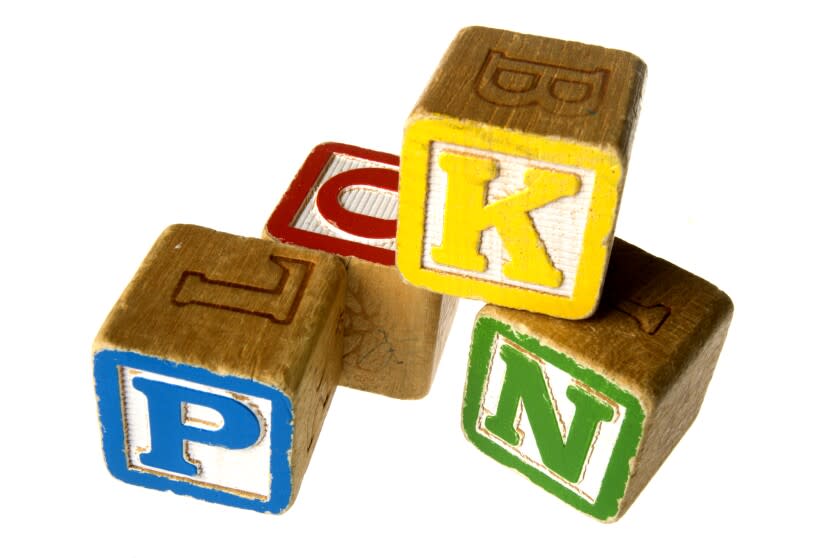Letters to the Editor: Gratitude for good grammar

To the editor: I am still smiling hours after reading Ellen Jovin's op-ed. She mentions that she has set up her grammar stand in 47 states. I have to assume that one of them was California and I hope that one of the cities was Los Angeles.
My own pet peeve is often when I hear a reporter on the news who does not understand the difference between the nominative case and the subjective case or one who is bent on dangling his participles. We need hundreds or even thousands of Ellen Jovins and their grammar-advise stands in as many locales as possible.
Joyce Hefland, Arcadia
..
To the editor: What a delight. I spent years listening to President Bush and cringing every time he misused "I" in place of "me." Surely, I would argue to anyone who listened, this should be an instant disqualifier for the highest office in the land.
Grammar matters. How pleasant to read this lighthearted, joyously written article reminding us that it does.
Christine Miller, Laguna Nigel
..
To the editor: Ellen Jovin's essay brings to mind the changes in adherence to, and appreciation for, traditional rules of English grammar that have transpired in my lifetime.
TV commentators, well-educated politicians and even NPR anchors continue to use the singular and plural as though they have no useful distinction. Almost universally one will now hear something like, "There's many ways to look at that issue." My high school English teacher would have cringed and reminded us that "there's" is the contraction of "there" and "is," the latter being singular, whereas "many" is plural. It has become as though the word "are" has been tossed into the dustbin of persnickety grammarians. Perhaps the word "are" now should serve simply as an acronym for "Ancient Rules of English."
When I share this concern with others, the usual, and understandable, reply is, "Well, that is common usage now." To which I respond, "Will students be justified in complaining about grammatical errors leading to a poor grade on a term paper by saying, 'But that is common usage now?'"
At any rate, to put it in the current, and acceptable vernacular, "I guess that me and my older friends will just have to adjust."
Edward Grubbs, Spring Valley
This story originally appeared in Los Angeles Times.

